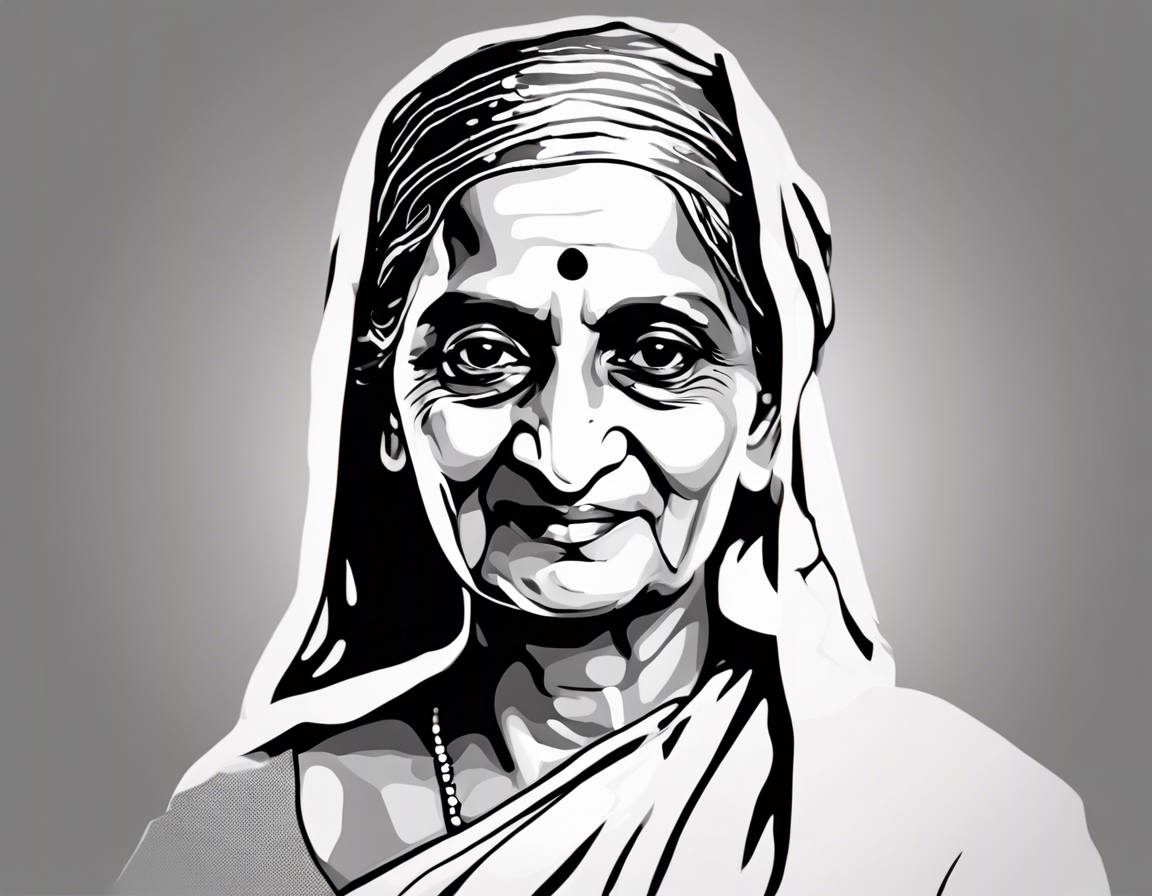Introduction
As the world commemorates the legacy of Mahatma Gandhi, it is equally important to pay homage to his wife, Kasturba Gandhi, whose contributions to the Indian freedom struggle often go unnoticed. Kasturba Gandhi, affectionately known as Ba, played a pivotal role in supporting her husband through his journey as a prominent figure in the fight for India’s independence. Her life was characterized by resilience, dedication, and strength, making her an inspiration for generations to come.
Early Life and Marriage
Kasturba Gandhi was born on April 11, 1869 in Porbandar, India, into a traditional Hindu family. At the age of 13, she was married to Mohandas Karamchand Gandhi, who would later be known as Mahatma Gandhi. Their marriage, arranged in accordance with Indian customs, marked the beginning of a lifelong partnership built on mutual respect and shared values.
Supporting Gandhi in the Freedom Struggle
Throughout their marriage, Kasturba Gandhi stood by her husband’s side as he led various campaigns against British colonial rule. She actively participated in civil disobedience movements, advocating for swadeshi (home-grown) goods and the non-cooperation movement. Kasturba Gandhi fearlessly faced arrest and imprisonment alongside her husband, enduring hardships with grace and fortitude.
Champion of Women’s Rights
Beyond her role as a supporting partner, Kasturba Gandhi was a trailblazer in promoting women’s rights in India. She emphasized the importance of women’s education and empowerment, advocating for gender equality in a time when such ideas were revolutionary. Kasturba Gandhi’s efforts laid the foundation for future generations of Indian women to assert their voices and fight for their rights.
Legacy and Impact
Kasturba Gandhi’s legacy extends far beyond her role as the wife of a prominent leader. She is remembered for her unwavering commitment to the principles of nonviolence and justice, her compassion towards all, and her unyielding spirit in the face of adversity. Her influence continues to inspire individuals around the world to stand up against injustice and oppression, embodying the true spirit of resilience and dedication.
Remembering Kasturba Gandhi Today
Today, as we reflect on the life of Kasturba Gandhi, it is essential to recognize her pioneering efforts in shaping India’s path towards independence and social reform. Her teachings on peaceful resistance and equality resonate deeply in a world still grappling with issues of injustice and inequality. By remembering Kasturba Gandhi, we honor not only her memory but also the values she stood for – values that continue to guide us in our own quests for a more just and equitable society.
Frequently Asked Questions (FAQs)
1. What were Kasturba Gandhi’s main contributions to the Indian freedom struggle?
Kasturba Gandhi actively participated in civil disobedience movements, supported her husband in his campaigns against British rule, and advocated for women’s rights and equality in India.
2. How did Kasturba Gandhi demonstrate resilience in the face of adversity?
Kasturba Gandhi endured hardships, including arrests and imprisonment, with grace and fortitude, showcasing her unwavering resilience in the pursuit of justice and freedom.
3. What values did Kasturba Gandhi represent in her life and actions?
Kasturba Gandhi embodied values such as nonviolence, compassion, dedication, and equality, which continue to inspire individuals to stand up against injustice and oppression.
4. How did Kasturba Gandhi influence women’s rights in India?
Kasturba Gandhi championed women’s education and empowerment, paving the way for future generations of Indian women to assert their voices and fight for their rights.
5. What is the significance of remembering Kasturba Gandhi’s legacy today?
Remembering Kasturba Gandhi allows us to honor her pioneering efforts in shaping India’s path towards independence and social reform, as well as to reflect on the enduring values of resilience, dedication, and justice that she embodied.
